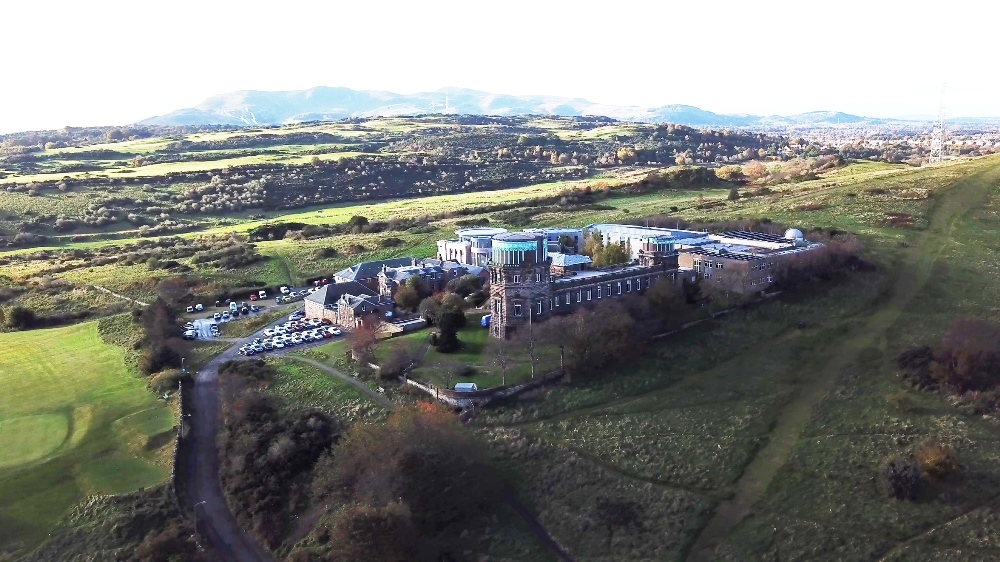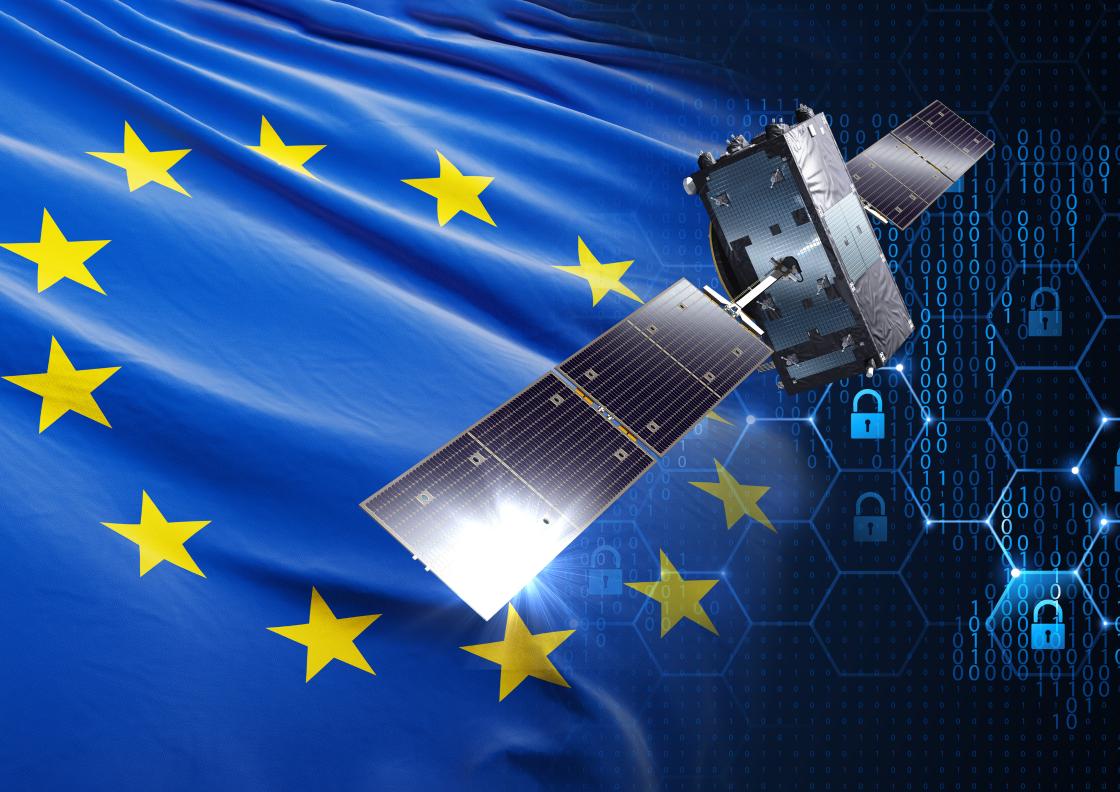Skyrora faces bureaucratic delay of Icelandic launch
Above:
The Skyrora team.
Courtesy Skyrora
With the launch from Husavik, Iceland - for which it built Europe's largest mobile spaceport - Skyrora had been ready to take a crucial next step towards its goal of completing the first full orbital rocket launch from UK soil in 2023 but the Icelandic government is yet to grant the necessary licence. The launch is also an opportunity to put Iceland on the map as a player in the new space economy and accelerate European launch vehicle competitiveness.
The proposed launch in Iceland would cement a pivotal new relationship at the heart of European space efforts, following confirmation received in 2021 of a Memorandum of Understanding between the UK and Iceland that secures the Icelandic Government’s support for UK launch activities from Icelandic soil, in Icelandic airspace and in Icelandic waters.
The agreement also supports enhanced cooperation between the two countries on research and student mobility, with funding made available for Icelandic students to study a spaceflight-related Masters course at a UK university. The launch site’s containerised structure and minimal footprint means that the team can go from site arrival to launch in just seven days, demonstrating the company’s capabilities as a responsive launch service provider.
Commenting on the proposed launch and addressing measures put in place to minimise its impact on the local area, operation leader Dr Jack-James Marlow, Head of Engineering at Skyrora, said: “To be capable of going from site arrival to launch in the space of just seven days is an amazing achievement by the team. We’re proud of this launch not just because it represents the next big step towards our ultimate goal with Skyrora XL - our larger orbital launch vehicle - but also because it will demonstrate the potential of Skylark L itself to widen access to space by unlocking opportunities for research and cubesat launches. Most importantly, though, the launch would build a strong relationship between Iceland and the UK for future launches. The support from the community in Thorshavn and around the Langanes Peninsula has been tremendous, offering cranes, fabrication hardware and local accommodation.
"We have also worked closely with aviation authorities to ensure public safety and put a mission in place to recover vehicles from the ocean, which is important from an environmental sustainability perspective. Now we just require a launch licence from the government to put these plans into action.”
Standing 11m tall, and with a payload mass of 50kg, Skylark L is the first Skyrora rocket capable of flying beyond 100km from the Earth’s surface. The vehicle - produced using 3D printed components - is powered by a clean burning 30kN bipropellant engine and is capable of reaching 3.5 times the speed of sound. Its original purpose was to complete final checks on subsystems prior to their use in Skyrora XL. However, completion of the prototype vehicle has created a new market, its potential for use for microgravity experiments at a lower cost than an orbital vehicle making it appealing to universities and research facilities.
This latest launch, when it happens, will see the Technology Readiness Level of the vehicle reach the final stage required for commercial readiness ahead of the planned launch of the three-stage orbital Skyrora XL rocket - with a 315kg payload mass - from a UK spaceport in early 2023.
Ahead of the launch, Volodymyr Levykin, Skyrora’s founder and CEO, said: “It’s been a long road since the engine firing test conducted in 2020, but after such a tremendous effort under difficult conditions, we are delighted to be so close to completing the first launch of this size in Europe. With the site completed, we are now ready to launch, but we still require a licence from the Icelandic government to realise the significant investment behind this project. We had hoped that the signing of the Memorandum would accelerate and smooth the approval process for this launch, so it's disappointing to have been delayed for nearly a year after so much support from the local community, both for our Skylark Micro launch in 2020 and in preparation for Skylark L. The launch would be a huge victory for this new relationship between Iceland and the UK, as well as the European space sector more broadly. Geographically, Iceland is positioned perfectly to open a new Space corridor for Europe and the nation possesses the crucial expertise to make an impact in the smaller launch market.”
Commenting on Skyrora’s intention to launch from Iceland, Matt Archer, Director of Commercial Space at the UK Space Agency, said: “Skyrora’s proposed launch benefits from our existing partnership and cooperation with Iceland in space, research, and student mobility. As we approach the UK’s first launch this summer, innovative UK companies such as Skyrora are developing groundbreaking launch technologies, increasing the UK’s reputation as Europe’s most attractive destination for launch activities.”
In a show of support from the Icelandic technology community on Skyrora’s efforts, Hilmar Veigar Pétursson, CEO of video game company, CCP games, said: "We have always tried to push the envelope when it comes to the gaming industry through groundbreaking technology and connectivity, so we are delighted to support Skyrora’s proposed launch from Iceland featuring its own pioneering technologies. With Eve Online, for almost 20 years we’ve been dreaming about the possibilities of space but the team at Skyrora are trying to help put Iceland on the map when it comes to future space launches. By joining forces with the UK’s burgeoning Space industry through the likes of Skyrora, Iceland’s unique geology and location can be used as a commodity to champion the Icelandic New Space Economy."
Earlier this year, Skyrora opened its new engine testing facility in the UK, pivotal steps in developing sovereign launch capabilities. By 2030, Skyrora aims to conduct 16 launches per year from Saxavord launch complex in the Shetland Islands alone. Further milestones achieved also include successful tests on its orbital transfer vehicle (OTV), a vehicle that once in orbit can refire its engines around 15 times to complete tasks such as acting as a space tug and maintainance or de-orbiting of defunct satellites. The vehicle will be used to address the ever-increasing volume of ‘space junk’ orbiting Earth, one of the biggest problems facing the global space industry. In its pursuit of a more sustainable space industry, Skyrora has also developed Ecosene, an alternative rocket fuel manufactured from waste plastic.
Levykin added: “We could not be more proud to be at the forefront of space innovation in the UK, blazing a trail for the next generation. The UK is a world leader in space technology, and this latest launch would take us another crucial step closer to reaching space from our own soil.”












